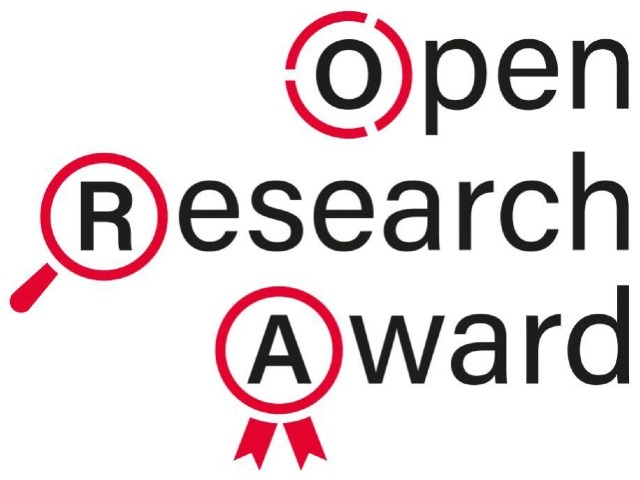Recap: Celebrating Openness (28 October 2021)

At the beginning of the new year, we look back at one of the highlights of 2021. On 28 October 2021, the University of Groningen Library (UB) and the Open Science Community Groningen (OSCG) organized the online event Celebrating Openness. Keynote speakers and UG researchers explored the role of open science in the humanities. The three winners of the Open Research Award 2021 gave lightening talks and a panel discussion addressed how the university should recognize and reward open science practices.
Open science in the Humanities
Although open science is often associated with the STEM disciplines - which are commonly seen as more data-driven - two keynote speakers made clear that open science is also very relevant to the humanities.
The unique contribution of humanities-research to the open science movement lies, according to Dr Marcel Knöchelmann (German Centre for Higher Education and Research Studies), in its historical-hermeneutic approach. He illustrated this with a critique of openness conceived as an end in itself. A narrow focus on openness sustains a problematic view of science as a simple production of output and distracts us from what should be our actual objective, namely establishing a more inclusive and equitable academia. Watch below how Knöchelmann draws a parallel with James Bond’s technological superiority in the new movie No Time to Die - and read Marcel’s earlier contribution to the Open Science Blog.
In her keynote, Dr Natalie Harrower (Digital Repository of Ireland) emphasized the importance of open scholarship in the humanities by highlighting the interconnections between the worlds of humanities researchers, GLAMs [Galleries, Libraries, Archives and Museums] and repositories. These worlds all share and produce data, have to deal with open access mandates and requirements and can, according to Harrower, very much benefit from FAIR [Findable, Accessible, Interoperable and Reusable] data management. Harrower’s examples from the Digital Repository of Ireland show that the implementation of FAIR principles for data management is, however, more of a societal than a technological challenge.
In his response to the keynote speakers, Dr Jorn Seubers (UG’s Digital Competence Centre) pointed to the support that the UG-DCC offers to researchers to make research data FAIR. Seubers also referred to ‘fellow-archeologist’ Indiana Jones to propose one particular FAIR practice for archeological artefacts, which is to include a geographical location in the metadata in data repositories such as DataverseNL.
Open Research Award
The second part of the event was dedicated to the winners of the annual UG Open Research Award (ORA), which celebrates the many ways in which academics make their research more accessible, transparent or reproducible. Similar to last year, the three winners were unconventionally determined by means of a modified lottery.
After twenty-six submitted entries were evaluated by a jury, three winners were randomly selected from eighteen eligible cases. Maurits Masselink (one of the organizers of the ORA) pointed out that a lottery system recognizes the impossibility of determining a winner on objective grounds. Instead of pretending that luck plays no role, it explicitly makes luck a component in the selection, which also has the benefit of alleviating unnecessary competitiveness and of avoiding bias.
The three winners of the Open Research Award 2021 - Hannah Dugdale+team, Jan Anton Koster+team and Andres Felipe Ramos Padilla - were given the opportunity to present their case studies as lightning talks.
Panel discussion: Recognizing and rewarding open research practices
The final part of the afternoon was dedicated to a panel discussion, which was introduced by Rector Magnificus Cisca Wijmenga, who emphasized the importance of sharing the research data that is generated at the UG. She thanked Dr Vera Heininga for taking the lead in a recently launched programme that seeks to stimulate open science practices and (FAIR) data sharing at the UG.
The panel discussion addressed how the university should recognize and reward open science practices. It was moderated by Prof. Tina Kretschmer (Faculty of Behavioural and Social Sciences) and featured Dr Flávio Eiró (Faculty of Arts), Prof. Marian Joëls (Faculty of Medical Sciences), Prof. Marijke Leliveld (Faculty of Economics and Business), Merle-Marie Pittelkow (Faculty of Behavioural and Social Sciences) and Prof. Mladen Popovic (Faculty of Theology and Religious Studies).
In a lively discussion the panellists discussed a wide range of topics, such as the implementation of the position paper Room for Everyone’s Talent (2019) and the place of open science in different career tracks, whether open science should play a role in the evaluation of researchers, how to establish a culture change towards an ‘open’ future for academia and the risk that open science-criteria and requirements will perpetuate existing (global) inequalities. Other themes addressed by the panel were the limits to openness, how to navigate the tension between data sharing requirements and the need to protect sensitive (personal) research data and whether more open science will come at the cost of the quality of science.
Relevant links
Learn more about the Open Research Award.


